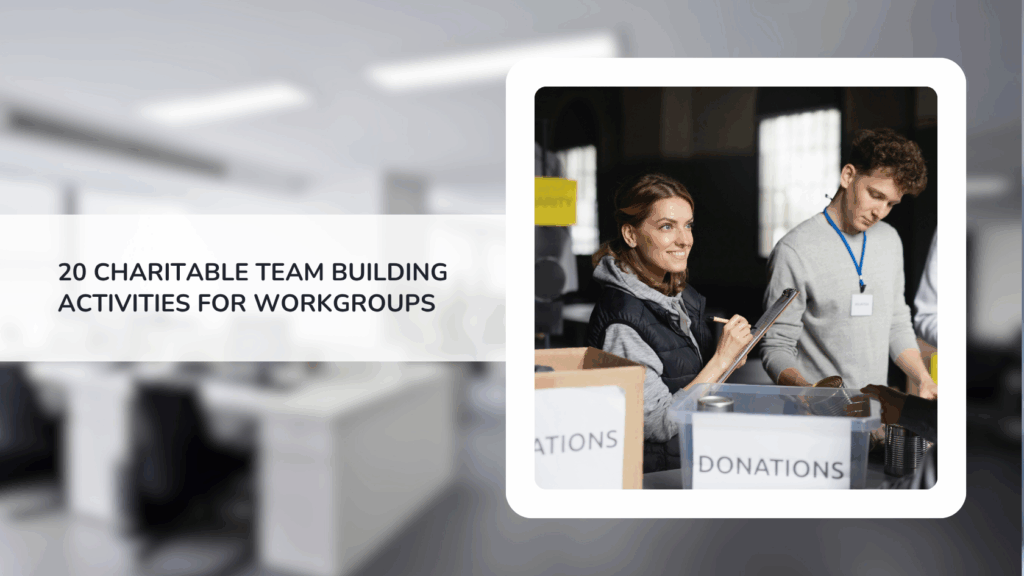
In this interview with Matt Buchanan, Co-Founder and Chief Growth Officer at Service Direct, you’ll learn about the unique and innovative employee perks and activities the organization has implemented to keeping its remote employees engaged.
Working remotely makes it challenging for employees to build bonds and cultivate relationships, especially for those who have been working remotely since they started with their company.
That was a challenge faced by Matt Buchanan, Co-Founder and Chief Growth Officer at Service Direct.

In this interview with Matt, you’ll learn about the initiatives that Service Direct implemented to mitigate these challenges and the impacts they’ve had on the organization.
What kind of challenges were your remote employees facing?
The lack of face-to-face supervision, easy access to information, and distractions at home are just some of the reasons why it’s challenging to keep remote employees engaged.
Those impromptu “watercooler” moments are harder to come by, and there is a risk of burnout when the line for work/life balance is blurred.
We were finding that our team was becoming more burnt out more quickly and that we needed to find a way to keep the team motivated, engaged, and with a healthy work-life balance.
What kind of employee perks and benefits have you implemented to boost engagement and satisfaction?

To help with job satisfaction, and prevent burnout, we recently implemented an alternating 4-day workweek which gives each full-time employee every other Friday off. Fully paid, no strings attached, no additional work hours during the week, and no compensation or PTO changes.
So, everyone gets approximately two extra days off a month.
In addition to that, we generally try to have two to three activities planned that are on a weekly or recurring basis, and one major activity or initiative that is planned each month.
On a recurring basis we do:
- 20-minute Virtual Coffee Breaks or Virtual Lunch Breaks
- 15-minute Virtual Wim Hoff breathwork sessions
- 30-minute Virtual Meditation Sessions
Some bigger activities that we have done have included:
- Virtual Pub Trivia
- Virtual mixology class
- Virtual book club
- Virtual Wellness Challenge
- Tour of Austin’s recycling plant
- Virtual happy hours
- Group hikes
- Kindness bingo
As a small business, you tend to be strapped for time and resources. How do you prioritize employee engagement initiatives amongst all the other priorities?
A while back, we decided to establish a Service Direct Loyalty Team. This was one of the best things we did. We have a team of five employees that are from all different departments and locations that volunteered to be on our loyalty team.
We meet every 2 weeks to discuss the following month’s initiatives, and at least one executive attends every meeting for decision making and budget approval.
This setup is great because it helps delegate any planning and execution tasks, it ensures that you have a broad spectrum of ideas and feedback based on the wants/likes of all teams, and it also provides a sense of ownership, pride and can be very rewarding.
What have been some of the benefits? Anything unexpected?

I’d say some main benefits are:
- Creating a sense of belonging
- Enabling a transparent work culture where no one is afraid to speak up
- Sparking innovation and idea sharing
It can be super challenging for the team to feel connected when everyone is remote. We’ve really seen these activities help foster a sense of camaraderie and friendship among the team.
They are a good reminder that we are all part of a bigger picture, working towards a common goal together.
Something that I’ve found most noticeable is that people who are on teams that don’t typically work together are able to get to know each other. They get to better understand what the other person’s day-to-day is like.
While most of our culture activities have a “no work talk” rule, inevitably they end up having conversations that spark really good ideas, simply by getting to know one another or having a casual water cooler moment.
For example, one of our sales reps had been suffering through a very minuscule but tedious and manual bug in our signup process that was wasting a good amount of time when added up. And, during one of our virtual lunch breaks, it was brought up because he was having to deal with it right before our lunch break. And one of our developers attended the lunch break and overheard this frustration and said, “What? Why didn’t you say anything? I can fix that in 10 seconds!” And, then he did fix it – on the spot. Our Sales rep just assumed that it would be a big effort to fix and decided to just suffer in silence.
That quick conversation led us to create a new internal bug intake process in Asana to make it easy and non-intimidating to report bugs/issues both large and small without feeling like it’s a burden or a laborious process.
I’d like to think that we eventually would have set that up anyway, but this new great thing was sparked by a “watercooler” moment that probably wouldn’t have happened otherwise. Those types of things help both the company and the day-to-day success of the employee.
Win-win.
What are some suggestions you’d offer for other companies when it comes to employee perks and benefits?

Above and beyond establishing a Loyalty Team, here are some things that I would recommend for other small businesses.
Set monthly or quarterly culture goals
In an effort to make sure these types of activities are a priority, it’s important to hold the company accountable. The best way to do that is to set goals and let them be known by the whole company by adding them to your company’s OKRs and setting specific objectives around what you want to accomplish. For us, we shoot to have a goal of at least one weekly wellness activity and one monthly group challenge or company-hosted event.
Create a shared Culture calendar
Set up a Culture Calendar that everyone can access, and where all current and upcoming events are posted. You can also color-code them based on whether or not they are “virtual” or “in-person” activities to make it clear to everyone what/if they are able to join.
Get feedback often
The best way to measure whether or not these activities are improving company morale and employee engagement is to get consistent feedback from the team. You could do this by sending a survey after each event, to make sure it is something that feels valuable to team members. Or consider sending a survey on a regular basis (monthly or quarterly), so that you can compare feedback over time. Always use that feedback as an opportunity to improve on what you are currently doing and get new ideas for the future as well.
As remote work continues to become more prominent, it’s vital for organizations to consider new ways to keep employees engaged and happy at work. And if there’s one lesson that can be learned from Service Direct, it’s that the investment will pay dividends for your employees and your organization.
What initiatives has your organization taken to support remote employee engagement? Let us know in the comments section.
Learn More About How Team Building and Training Programs Be Used as Employee Perks and Benefits
For more information about how to improve employee engagement and morale by using team building and training as employee perks and benefits, reach out to our Employee Engagement Consultants.
Author Bio:
Matt Buchanan
Matt Buchanan is the Co-Founder and Chief Growth Officer at Service Direct, a technology company that offers local lead generation solutions for service businesses. He is a graduate of Vanderbilt University. He has 15+ years of expertise in local lead generation, sales, search engine marketing, and building and executing gro”Matt Buchanan is the Co-Founder and Chief Growth Officer at Service Direct, a technology company that offers local lead generation solutions for service businesses. He is a graduate of Vanderbilt University. He has 15+ years of expertise in local lead generation, sales, search engine marketing, and building and executing growth strategies.



